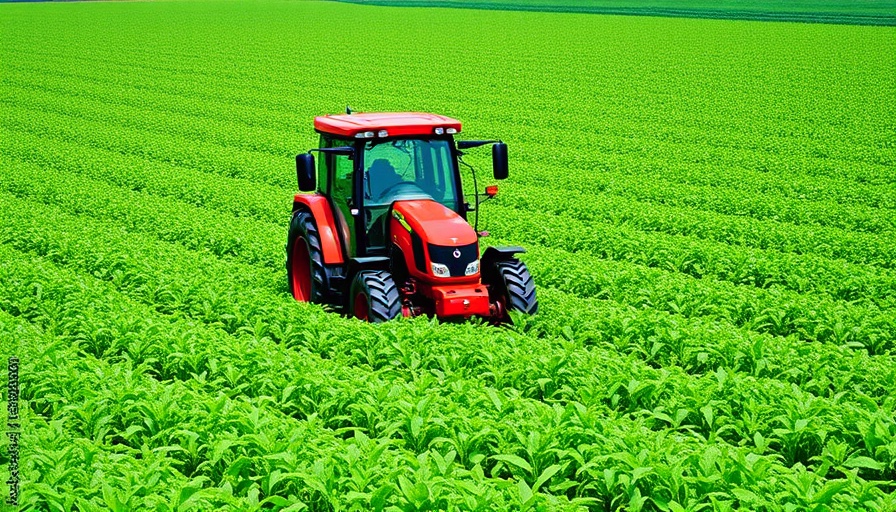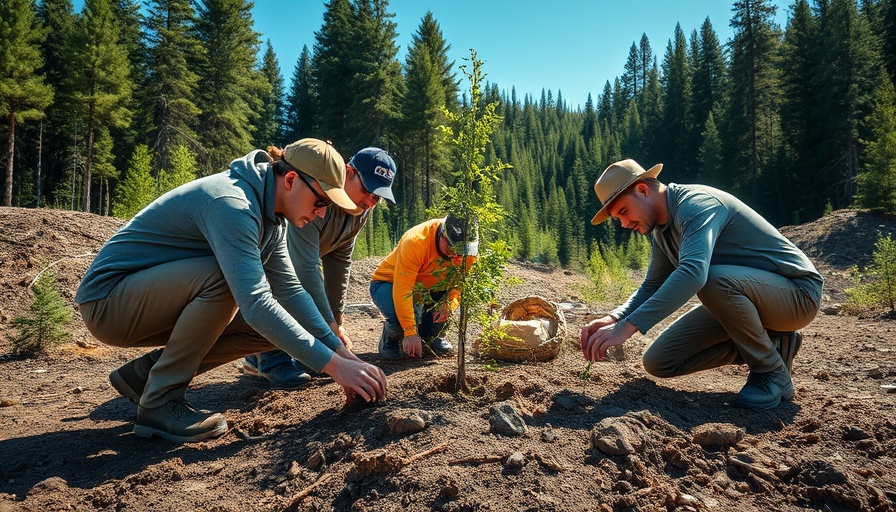
A Green Transition: How Iroquois Valley is Reshaping Farming
In a world increasingly aware of environmental sustainability, the Iroquois Valley Farmland REIT is paving the way for a healthier food system. Founded 17 years ago, this Ohio-based investment firm has dedicated itself to partnering with farmers transitioning to organic and regenerative agricultural practices. Investing over $126 million in farmland across 20 states, Iroquois Valley aims to shift the paradigm of farming by providing low-interest, long-term financing to support ecological practices that respect the land.
Empowering Farmers for a Sustainable Future
One notable partnership is with fifth-generation farmer Rex Wettstein, who is on a mission to expand his family’s farming operations responsibly. By leasing farms back to farmers over a six-year term, Iroquois Valley assists them in navigating the often lengthy organic certification process. After six years, these leases can renew automatically, giving farmers the option to purchase the land. This model encourages long-term investments in sustainable agriculture by allowing farmers like Wettstein to enrich their portfolios while focusing on organic production.
The Importance of Regenerative Agriculture
Regenerative agriculture does more than just promote organic crops; it enhances soil health, increases biodiversity, and contributes to carbon sequestration. As concerns over food security and climate change mount, methods that restore ecosystems are gaining traction. By investing in practices that replenish rather than deplete resources, Iroquois Valley exemplifies a forward-thinking approach that can inspire farmers across the nation. In 2022 alone, the REIT distributed $37 million from investors to various farmers, emphasizing the potential for organic practices to generate profitable returns while caring for the environment.
Navigating the Future of Farming
The shift towards regenerative agriculture not only benefits the earth but creates new avenues for farmer success. Farmers are progressively seeking innovative paths to sustainability through investments in renewable energy alongside organic farming—like Wettstein's upcoming venture. This evolution is crucial for a market craving eco-conscious food sources, offering tech-savvy health enthusiasts not only a viable interest in their diets but also a stake in a burgeoning industry focused on revitalizing the planet.
As we see more narratives like Iroquois Valley's, it's clear that the intersection of agriculture and investment is ripe for transformation, inviting citizens to engage in a healthier future. So, when considering what to support, think about where your food comes from and how those choices impact your health and the planet.
 Add Row
Add Row  Add
Add 




 Add Row
Add Row  Add
Add 



Write A Comment